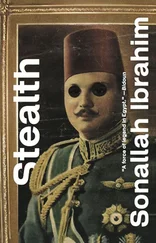Although the child disappeared for days or even weeks, he would turn up occasionally, reappearing as suddenly as he had vanished. He would surface perhaps out of compassion for his mother, even though he would never tell her the secret reason for his absence or where he had been during those days. He would just laugh idiotically whenever his mother attempted to question him and then dart off to join his playmates outdoors. It was also said that these mysterious forays of his were responsible for his mental hiccups. He had once absented himself for more than a month, and the whole tribe had gone out searching for him, to no avail. Cunning trackers arrived and followed a trail, which ended abruptly at an impressive hill that was encircled by tombs of ancient ancestors and that overlooked arid Temarit Ravine, which leads to the western deserts. When his tracks stopped abruptly, the tribe was reduced to wandering aimlessly, gleaning news from shepherds, wayfarers, migrants, and hermits. More days passed, then weeks, but the lost lad did not turn up. It is always like this in the desert, for deliverance from affliction comes only after one despairs of relief. People had despaired and lost hope when the missing lad appeared one evening, carried on the back of a camel that was led by a migrant who dropped him off at the campsite and continued on his way into the unknown. The feverish and glassy-eyed child, who had foam trickling from his mouth, argued with unidentified companions no one else could see. The slave woman tended him with herbal remedies, twiggy brews, and charms. After a few days he was able to move about on his own two feet. Physically he was returning to normal, but the trip had scarred him. He had become noticeably squint-eyed, and his mind was even more clearly affected. His words seemed topsy-turvy. He saw things no one else saw and heard what no one else heard. Even on the coldest nights, he would sleep out in the open, terming tents and dwellings “prisons.” He would tear the shirt from his chest and run naked, referring to garments as “swaddling clothes.” He had an extreme distaste for gold and called the ingots over which the traders in passing caravans vied “copper.” He also referred to the beauties of the clans as “snares,” even though he enjoyed teasing them and conveying their messages to their lovers. He played with children his age but ridiculed them as “fathers’ tombs,” whenever he quarreled with them. These wretches would taunt him and call him “foundling” to his face. He would take this as a joke and retort as his ruined intellect dictated: “You boast of your earthly fathers, but show me your heavenly father.” If they bragged about their fathers when he was present, he would tell them, “We should not call a father a ‘father,’ unless he’s absent. We should not brag about our affiliation with a father we can see and hear, even if he is the tribe’s leader or priest.”
Then he would suddenly feel so downhearted that tears would glisten in his eyes. Gazing over the expanses of eternal wasteland, he would say, “We’re all foundlings in this desert!” Those wretches, however, ignored his sorrow, for they were too “intelligent” to catch the secret drift of his words. Instead, they took turns mocking him, repeating, “You’re a she-jinni’s kid!” He would respond just as derisively, “You’re fathers’ sons. I’m the sky’s son.” When they decided to push their provocation further to deride him for his mind’s handicaps, he would retort defiantly, “Praise heaven for liberating me from this tyrannical demon!” The mentally unchallenged children would all laugh at the logic of their playmate’s boast of being liberated from the intellect’s constraints. The fool would make fun of his mates who bragged about their hobbling intellects, since not even the wisest of the tribe’s elders from either faction could rule according to his mind.
When he wearied of his contemporaries’ sarcasm, the fool enjoyed repeating, “Your minds are in your heads; mine is in my heart.” Then he would quit them as if fleeing to eternity.
What the fool could not bear was discussion of the mysterious voyage during which he lost his mind — or was liberated from that tyrannical demon, as he liked to put it. Whenever people chanced to mention that and inquisitively attempted to pry the secret from him, his eyes gazed off across the empty countryside. Sorrow pervaded his look, and his right eye became even more dominant. The most he would say was that the earth had answered his appeal, transporting the hill where he sat at twilight, to deposit him in the land of Longing. He never once, however, answered nosy questions about the land he referred to as “Longing.” When people showered him with inquiries, eager to hear more, he would slip away from the gathering and escape to the open countryside. The tribe’s elders said, “Fools are a community who will not betray their message. The only reason they lost their earthly minds was to recover their hearts in the spirit world.”
Western marauders who launched a raid against his tribe’s lands one year found him tending his camels in the region adjacent to the Blue Mountains. They fastened a palm-fiber rope around his neck and took him away as a captive to sell in the markets of Tawat, where a noble from the Ahaggar tribes, who live in the western deserts, purchased him. His new master set off with him toward his tribal homelands. The two men spent the night in a grim ravine ringed by clay banks. Then the captive took from his pocket a flute he had himself cut from a reed thicket in an oasis swamp of his lost homeland and — once his master had withdrawn partway down the valley bottom — breathed through it his grief for this lost land. After midnight, however, the master returned and loomed above his captive like a ghostly jinni, swaying to the melodies of the flute. The man stopped playing, but his master urgently gestured for him to continue. He breathed into the flute’s opening his longing and articulated his despair through these yearning breaths. The master swayed, experiencing the intoxicated trance of mystics. In fact, he liberated himself from the dignified behavior of nobles and chanted an ancient lament to the melody that flowed from the flute. Longing flamed in his heart, and with each breath he exhaled this fire, as the reed responded with complaints and wails. The stillness grew even more profound and this melody made the desert’s solitude seem even more pronounced. The heavens abandoned their eternal serenity to lean down toward the valley bottom, and the stars glistened with an inquisitive, inebriated gleam. Once the captive put down his flute and silence supplanted its harmony, the master observed, “I never would have thought a man could sing with a palm cord around his neck.”
Panting from exhaustion, the captive replied, “The cord’s around my neck, master, not around my heart.” He fell silent but added, “We lose nothing, master, as long as we have not lost the self.”
The master asked in a manner that showed his astonishment, “Haven’t you lost your self?”
“Of course not. Perhaps I’ve lost control of my body; I’ve not lost my self.”
“Isn’t slavery the ultimate loss?”
“Slavery is the body’s ultimate loss of control, not the heart’s. We lose our selves, master, when our heart is enslaved and we are free. We gain our selves via the heart’s freedom while we are captive.”
“Are you a poet?”
“All of us are poets, master.”
“Have you suffered a great deal?”
“What is life save a succession of pains that eventually accustom us to enjoying pain’s bitterness?”
“Woe to anyone who does not acquire a taste for pain’s bitter flavor.”
Читать дальше












